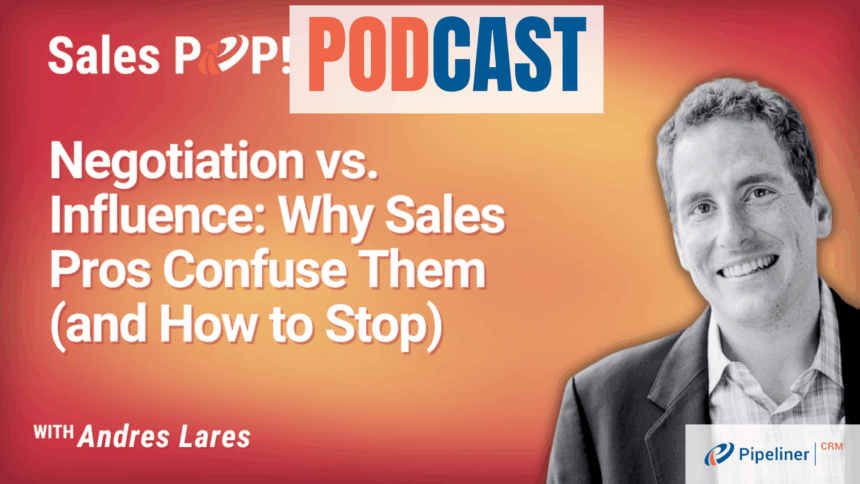Welcome back to the podcast. Today, we’re dissecting a fundamental error many sales professionals make: blurring the lines between negotiation and influence. As Andres Lares of the Shapiro Negotiation Institute emphasizes, recognizing this distinction early is the first step to closing more valuable deals.
1. Defining the Core Concepts for a Clearer Strategy
A common mistake is treating the two as if they were synonyms. They are not.
- Negotiation (Mutual Exchange): This is a two-sided discussion focused on achieving a win-win outcome. Both parties have something the other desires (value, price, terms) and are mutually exchanging concessions to create the largest possible “pie.”
- Influence (The Guided Action): This is the directional effort one party uses to compel the other toward a specific decision or action. It happens constantly and often between formal talks.
Snippet Answer: Clarifying if you are negotiating (seeking a mutual value exchange) or influencing (guiding a one-sided action) fundamentally changes your tone, strategy, and likelihood of a positive outcome.
2. The Mandate for Early Negotiation Integration
Don’t wait until the final contract review to start negotiating. Lares warns against treating negotiation as a last-second confrontation. The most effective sales professionals integrate it from the first interaction.
- Why Early Negotiation is Non-Negotiable: When you introduce complex contracts, terms, or stakeholders (like Legal or Procurement) only at the end, you create unnecessary friction. Early integration enables continuous Value Assessment by both parties, preventing last-minute surprises.
- Actionable Tip: Share Terms Before You Share Price. Introduce standard contracts or terms at an early stage. This transparency fosters trust and streamlines the process for a faster close. It manages signals like desperation or a willingness to discount, ensuring you protect your pricing position.
- Stakeholder Mapping: Identify and involve all decision-makers, gatekeepers, and technical influencers from the outset. Negotiate with them in staged discussions—addressing terms, then deliverables, pricing—rather than overwhelming them in a single, pressurized final session.
Visit us on Apple Podcast You can also find SalesPOP! on all major podcast stations.




Comments